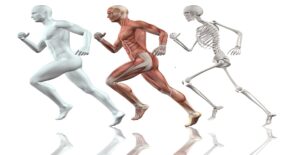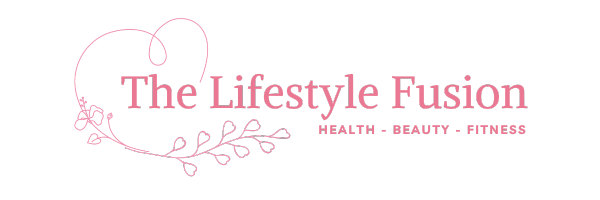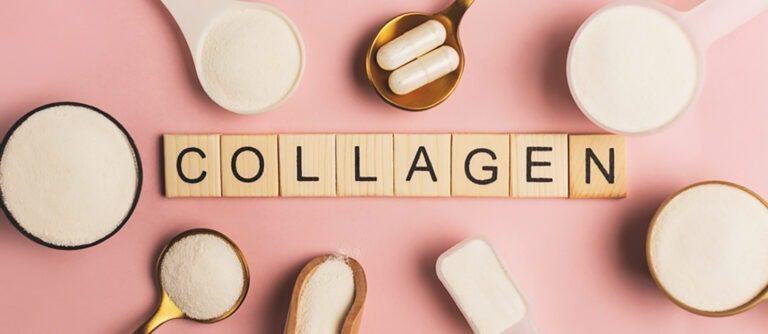Introduction:
Discover the myriad of collagen benefits, renowned for its pivotal role in maintaining skin elasticity, joint health, and more. From promoting youthful radiance to supporting overall wellness, collagen is a cornerstone of vitality and beauty.
Collagen is a fundamental structural protein found abundantly in the human body, serving as a crucial building block for connective tissues. Collagen benefits comprising a triple helix of amino acid chains, collagen plays an essential role in providing strength, elasticity, and support to various bodily structures, including skin, tendons, ligaments, bones, and cartilage.
As the most abundant protein in mammals, collagen contributes to the maintenance of skin firmness and suppleness, joint flexibility, and overall tissue integrity. Its intricate structure enables it to form a scaffold that holds cells together, fostering tissue cohesion and resilience.
Over time, factors such as aging, sun exposure, and lifestyle choices can lead to a natural decline in collagen production, resulting in visible signs of aging like wrinkles and sagging skin.
As a result, there is growing interest in strategies, including dietary approaches, to support and stimulate collagen synthesis, thereby collagen promoting the maintenance of healthy and resilient tissues for both men and women equally.
Understanding Collagen Benefits: Types & Functions

Collagen is a diverse family of proteins, and different types of collagen exist throughout the body, each with specific functions and structural characteristics. As of my last knowledge update in January 2022, at least 28 different types of collagen were identified, but the seven most common types are found in the human body. A brief discussion on collagen types along with their functioning in human body structure is as follows:
Type I – Collagen and Functions
Type I collagen is a fundamental protein that plays a pivotal role in maintaining the structural integrity and strength of various tissues in the human body. As the most abundant collagen type, it is found in skin, tendons, ligaments, bones, and other connective tissues.
The unique triple-helix structure of Type I collagen provides exceptional tensile strength, making it well-suited for withstanding mechanical stress. In the skin, Type I collagen forms a robust framework, contributing to its firmness, elasticity, and overall youthful appearance. Tendons and ligaments, which connect muscles to bones and bones to each other, rely heavily on Type I collagen for their strength and flexibility.
Type I collagen provides the scaffold for mineralization in bones, contributing to bone density and resilience. The functions of Type I collagen extend beyond support; it is involved in wound healing processes, forming a scaffold for cell migration and tissue repair.
The widespread presence and multifaceted functions of Type I collagen highlight its indispensable role in maintaining the structural integrity and functionality of diverse tissues, ensuring the overall health and well-being of the musculoskeletal system.
Type II – Collagen and Functions
Type II collagen is a fundamental protein with specialized functions primarily centered around the health and integrity of cartilage, a crucial component in joints. This collagen type is the predominant collagen in cartilage tissue, forming a mesh-like network providing structural support.
The key function of Type II collagen is to maintain the tensile strength and flexibility of cartilage, allowing it to absorb shock and withstand compressive forces in joints during movement. As cartilage lacks blood vessels, Type II collagen plays a vital role in nutrient and oxygen exchange for chondrocytes, the cells responsible for maintaining cartilage.
This collagen type is essential for preventing wear and tear on joints, promoting joint flexibility, and contributing to overall musculoskeletal health. The structural support provided by Type II collagen is particularly significant in preventing conditions like osteoarthritis, where the deterioration of cartilage can lead to joint pain and reduced mobility. Consequently, the functions of Type II collagen are integral to maintaining the health and functionality of joints and ensuring the smooth and pain-free movement of the body.
Type III – Collagen and Functions
Type III collagen is a significant protein with distinctive functions, primarily associated with its role in providing structural support to various tissues in the human body. Found in skin, blood vessels, and internal organs, Type III collagen often works in conjunction with Type I collagen.
In the skin, it contributes to elasticity and suppleness, playing a key role alongside Type I collagen in maintaining the integrity of the dermal layers. Within blood vessel walls, Type III collagen provides structural support, contributing to the elasticity and resilience of these vessels. Its presence in internal organs, such as the liver and lungs, ensures proper tissue architecture and support.
Type III collagen is especially prevalent in tissues subjected to dynamic mechanical forces. As fibrillar collagen, it contributes to the formation of collagen fibers, enhancing the tensile strength and flexibility of connective tissues.
The functions of Type III collagen are crucial for the overall maintenance of skin health, vascular integrity, and the proper functioning of internal organs, highlighting its significance in supporting the structural framework of diverse tissues throughout the body.
Type IV – Collagen and Functions
Type IV collagen is a specialized protein that serves a crucial role in the formation of basement membranes, thin layers that provide structural support to various tissues. Unlike the fibrillar collagens, Type IV collagen does not form long fibers but creates a mesh-like network within the basement membrane.
This collagen type is essential for maintaining the integrity of the basement membrane, which separates and supports different tissue layers. In particular, Type IV collagen is found in basement membranes between epithelial and connective tissues, contributing to tissue organization. Its functions include serving as a scaffold for cells and helping to regulate the passage of molecules.
In the kidneys, Type IV collagen is a critical component of the glomerular basement membrane, contributing to the filtration barrier. Overall, the functions of Type IV collagen are integral to the stability and proper functioning of basement membranes, ensuring tissue organization, support, and regulation of various cellular activities.
Type V – Collagen and Functions
Type V collagen is a lesser-known but important member of the collagen family, contributing to the structural framework and organization of various tissues in the human body. While present in smaller quantities compared to Type I and Type III collagen, Type V collagen plays a crucial role in the regulation of collagen fibrillogenesis, the process by which collagen fibers are formed.
This collagen type is often found in tissues like hair, the placenta, and the surfaces of cells. In hair, Type V collagen is believed to contribute to the strength and structure of hair strands, highlighting its role in supporting the integrity of this tissue.
Although the functions of Type V collagen are not as extensively studied as some other collagen types, its regulatory role in collagen assembly underscores its significance in maintaining the overall structure and function of tissues where it is present. Further research is needed to fully elucidate the specific functions and contributions of Type V collagen in various physiological processes.
Type VI – Collagen and Functions
Type VI collagen is a crucial protein that contributes to the structural integrity and organization of the extracellular matrix in various tissues. Unlike the fibrillar collagens, Type VI collagen forms beaded filaments and is found in association with other collagen types.
This collagen is widely distributed in connective tissues such as skin, cartilage, and the walls of blood vessels. The primary function of Type VI collagen is to provide a scaffold for cells within the extracellular matrix, promoting tissue organization and stability. It plays a key role in the anchoring of cells to the matrix and helps modulate cellular activities.
Additionally, Type VI collagen interacts with other matrix components, contributing to the overall mechanical properties of tissues. Its functions are diverse and include supporting tissue architecture, regulating cell behavior, and participating in the maintenance of tissue homeostasis. The versatility of Type VI collagen highlights its importance in ensuring the proper organization and function of various tissues throughout the body.
Type VII – Collagen and Functions
Type VII collagen is a specialized protein with a critical role in maintaining the structural integrity of tissues, particularly in the formation of anchoring fibrils within the basement membrane zone. This collagen type is notably found in the skin, where it plays a crucial role in anchoring the epidermis (the outer layer of the skin) to the underlying dermis.
The primary function of Type VII collagen is to ensure the structural cohesion and stability of the skin layers. By forming anchoring fibrils, Type VII collagen helps prevent separation and blistering of the skin, providing essential support for the skin’s overall integrity. Mutations in the COL7A1 gene, which encodes Type VII collagen, can lead to a group of genetic disorders collectively known as dystrophic epidermolysis bullosa.
Individuals with these disorders experience skin fragility and blistering due to the impaired anchoring function of Type VII collagen. In summary, the functions of Type VII collagen are pivotal for maintaining the structural cohesion of the skin, emphasizing its indispensable role in skin health and the prevention of certain skin-related disorders.
Thus, these collagen types, along with others, contribute to the structural integrity, elasticity, and functionality of various tissues and organs in the body. The specific composition of collagen varies depending on the tissue and its function. It’s worth noting that ongoing research may lead to the discovery of additional collagen types or new insights into the functions of existing ones.
10 Collagen Benefits To The Human Body: Ultimate Guide

Collagen benefits the body at a wider range, supporting various tissues and overall well-being. Here are some key benefits of collagen included as:
1. Skin Health
- Improved Skin Elasticity: Collagen contributes to skin elasticity, helping to maintain a firm and youthful appearance.
- Reduced Wrinkles: Collagen helps reduce the appearance of wrinkles and fine lines by providing structural support to the skin.
- Hydration: Collagen promotes moisture retention in the skin, contributing to a hydrated and supple complexion.
- Anti-Aging Effects: Collagen’s role in maintaining skin elasticity and hydration contributes to anti-aging effects, and decreases the visible signs of aging on skin.
2. Hair and Nail Strength
- Collagen supports the structure and strength of hair and nails.
- Helps promote their growth and prevent brittleness.
3. Eye Health
- Collagen is a crucial component of the cornea.
- It can support the clarity and structure of the eyes.
4. Bone Strength
- Bone Density: Collagen provides a scaffold for mineralization, contributing to bone strength and density.
- Fracture Prevention: Collagen supplementation may help reduce the risk of fractures and improve bone health, especially in aging populations.
5. Muscle Mass Maintenance
- Collagen is found in the connective tissues surrounding muscles.
- Adequate collagen levels may contribute to muscle mass maintenance and overall muscle function.
6. Joint Health
- Cartilage Support: Collagen is a major component of cartilage, supporting joint health and reducing the risk of joint disorders.
- Increased Flexibility: Collagen helps maintain the flexibility and mobility of joints, contributing to overall joint function.
7. Gut Health
- Collagen may support gut health by promoting the integrity of the digestive tract lining.
- It potentially reduces inflammation and supports proper nutrient absorption.
8. Heart Health
- Collagen provides structure to the blood vessels of the heart.
- It contributes to cardiovascular health by maintaining vessel integrity and elasticity.
9. Wound Healing
- Collagen is involved in the early stages of wound healing.
- It assists in forming a scaffold for cells to migrate and tissues to repair.
10. Tendon and Ligament Support
- Collagen supports the strength and flexibility of tendons and ligaments.
- It reduces the risk of injuries and enhances overall joint stability.
Conclusion:
In conclusion, the collagen benefits are diverse and significant, spanning various aspects of tissue health and overall well-being. Collagen, with its different types distributed throughout the body, is fundamental in providing structural support to the skin, joints, bones, and internal organs.
The maintenance of skin elasticity, joint flexibility, and bone strength are among the prominent advantages associated with collagen. Additionally, collagen contributes to the health of connective tissues, blood vessels, and even the clarity of the cornea in the eyes.
Whether consumed through a well-balanced diet rich in collagen-containing foods or as supplements, individuals may experience reduced wrinkles, improved joint function, and enhanced skin hydration.
While scientific research continues to explore the full extent of collagen’s potential, it remains a vital component in the intricate web of proteins that supports the body’s structure and function, promoting health and vitality throughout various stages of life.






